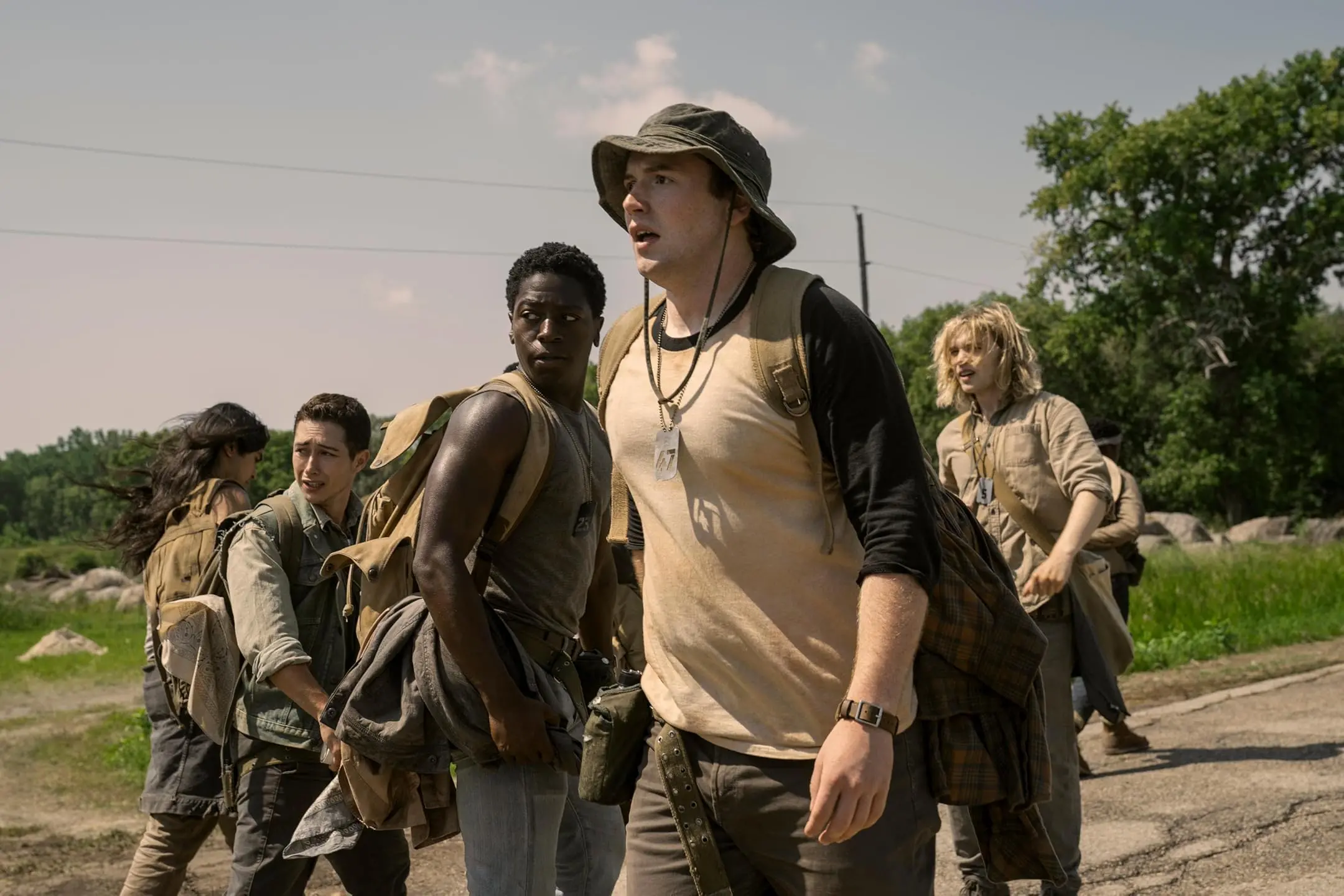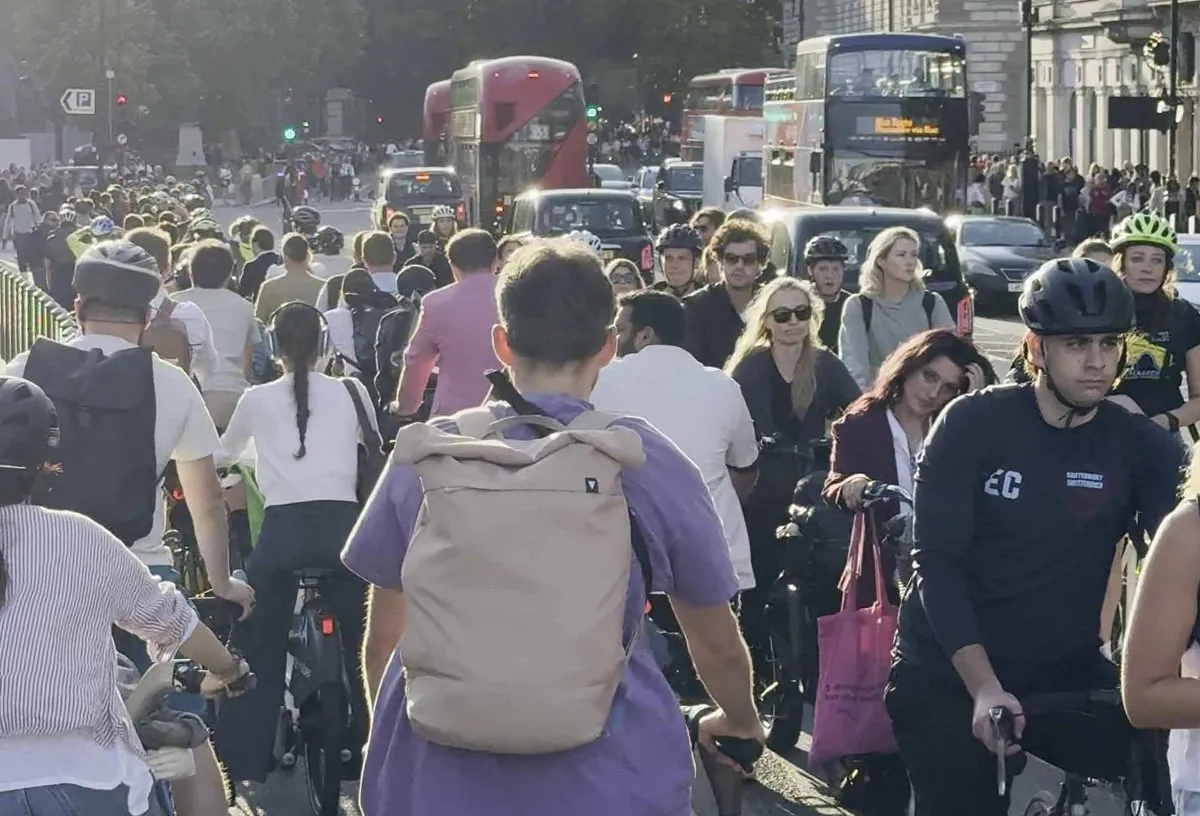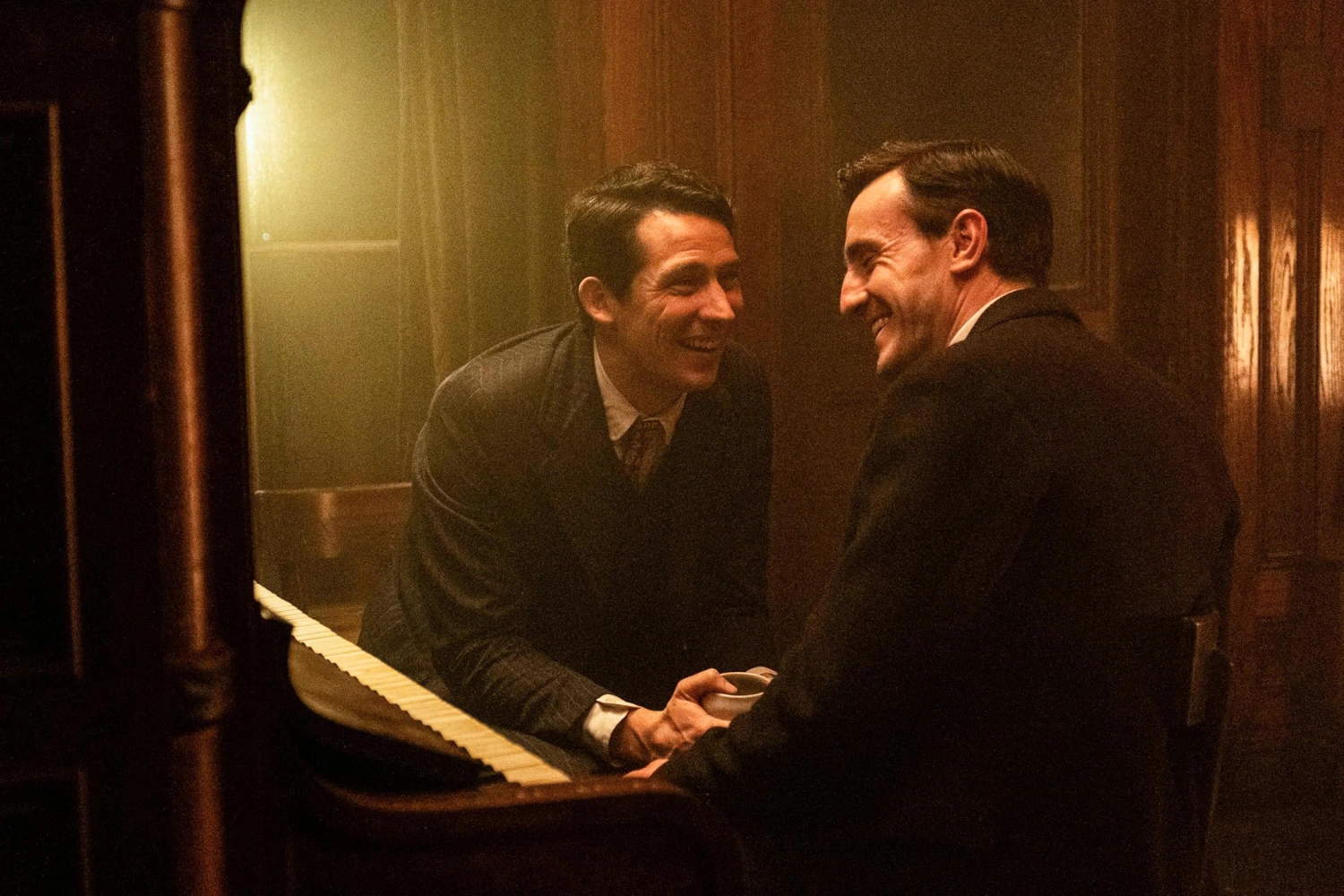By John Nathan
Copyright thejc

Frances Lawrence has directed most of the Hunger Games franchise, which is possibly one reason why this tough-to-watch movie – adapted from Stephen King’s first novel – feels as if it belongs to the same genre. Call it the Dystopian State Teen Killing genre. They feature a totalitarian country whose government sacrifices its youth as a way of both suppressing dissent and entertaining the masses. This one is set in an America experiencing “economically desperate times” after a war. Photographed in muted light and colours, the period has the look and feel of the Great Depression, though it chimes too with the 1960s, the decade in which King wrote his novel, which, although it was his first, came out in 1979 five years after his published debut, Carrie. The plot is simple. One hundred young men are chosen from millions of applicants to walk a road across dystopian landscape until there is only one competitor left. Those moving at less than four miles per hour are given a warning. After three warnings the walker is given his “ticket” in the form of a bullet to the head. Accompanying the group is a squad of soldiers who shadow the walkers in army vehicles. Their commanding officer, known as The Major (Mark Hamill), is a pitiless functionary of the regime. He unhesitatingly carries out summary executions should anyone transgress his interpretation of the already murderous laws of the land. Our focus is on Raymond, an ordinary young man extraordinarily well played by Cooper Hoffman (son of the late and actually great Seymour). We first encounter him during a tense car journey. His mother is driving him to the walk’s starting place where other boys and young men are sitting randomly on a road’s tarmac overlooked by casually menacing soldiers. Raymond – now AKA No 47 – strikes up an immediate friendship with Peter (No 23) played by David Jonsson, the latest British actor to slam-dunk a quintessentially American role in Hollywood. Combined the duo form the film’s heart, a two-man band of brothers. There is also an excellent turn by Charlie Plummer as Gary (No 5), a psychological loose cannon whose bullying causes one of the more vulnerable walkers to miss his warnings and receive his ticket. Gary is as shocked as he is appalled, though he tries not to let on. Through wind and rain and the blank stares of the public hollowed out by grinding poverty, the group make their progress over hundreds of miles, pausing only to defecate, their dwindling number buoyed by banter that makes the terror tolerable. Yet the logic of the story – that executing a country’s children in public suppresses rather than foments dissent – does not hold up. So unlike other films this movie brings to mind – Cool Hand Luke (1967), whose prison governor is a breaker of human spirit just like The Major here, or They Shoot Horses Horses, Don’t They? (1969) in which marathon dancers win prize money by being the last couple to drop – disbelief has to be suspended, making this long walk even longer. The Long Walk Certificate 15



